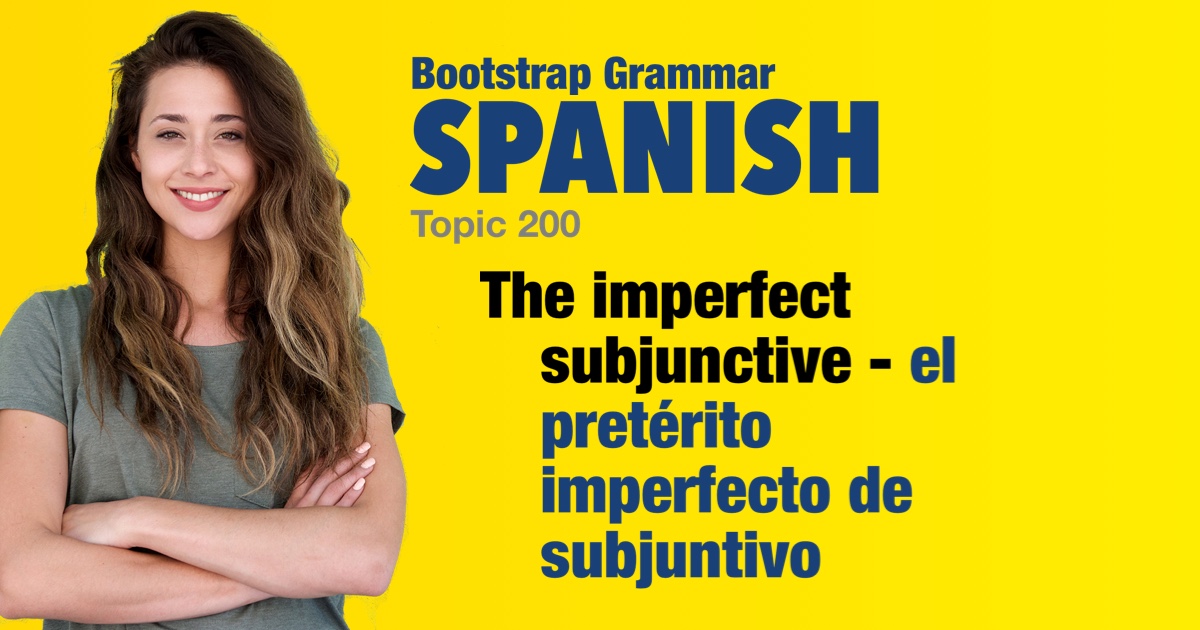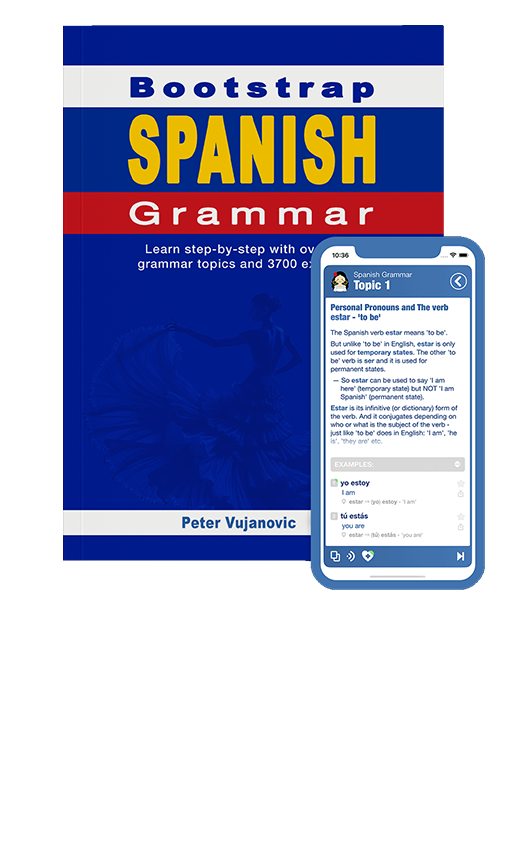Spanish grammar - The imperfect subjunctive - el pretérito imperfecto de subjuntivo |
|||
|
|||
The imperfect subjunctive - el pretérito imperfecto de subjuntivo - is the past tense form of the subjunctive. In addition to the regular uses of the subjunctive it is also commonly used for conditional 'if' statements. -- In that case the subjunctive verb is in the 'if' clause, and the subordinate clause is in the conditional. -- In this usage The subject of both clauses can be The same. El pretérito imperfecto de subjuntivo is formed in the following way for all regular verb types (using hablar for the example): 1. Take the third person plural of the preterite tense: hablaron 2. Drop the -ron ending: habla- 3. Add the imperfect subjunctive endings: • yo : habla + ra ⇒ hablara • tú : habla + ras ⇒ hablaras • él-ella-usted : habla + ra ⇒ hablara • nosotros-nosotras : habla + ramos ⇒ habláramos -- Note that for The nosotros conjugation, The vowel before The -ramos ending is always accented. • vosotros-vosotras : habla + rais ⇒ hablarais • ellos-ellas-ustedes : habla + ran ⇒ hablaran |
| Examples: | |
|
Si yo tuviera más dinero, viajaría por el mundo.
If I had more money, (I) would travel around the world.
|
|
|
Esperaba que tú vinieras a mi fiesta.
(I) hoped that you (familiar) would come to my party.
|
|
|
Era importante que él hiciera sus deberes.
It was important that he did his homework.
|
|
|
Si nosotros supiéramos la respuesta, te la diríamos.
If we knew the answer, (we) would tell you (familiar).
|
|
|
Dudaba que ellos pudieran resolver el problema.
(I) doubted that they could solve the problem.
|
|
|
Quería que vosotros estudiárais para el examen.
(I) wanted you all (familiar, plural) to study for the exam.
|
|
|
No creía que ella dijera la verdad.
(I) didn't believe that she was telling the truth.
|
|
|
Nos sorprendió que ustedes llegaran tarde.
It surprised us that you all (formal) arrived late.
|
|
|
Prefería que ellos hablaran con el profesor.
(I) preferred that they talk to the teacher.
|
|
|
Esperaba que tú escribieras una carta.
(I) hoped that you (familiar) would write a letter.
|
|
|
Era necesario que nosotros comiéramos antes de salir.
It was necessary that we eat before leaving.
|
|
|
Si tú estudiaras más, sacarías mejores notas.
If you (familiar) studied more, you would get better grades.
|
|
|
No pensaba que ellos supieran la verdad.
(I) didn't think that they knew the truth.
|
|
|
Quería que él me ayudara con el proyecto.
(I) wanted him to help me with the project.
|
|
|
Era importante que vosotros terminarais el trabajo.
It was important that you all (familiar, plural) finish the work.
|
|
|
Si tú vinieras a la fiesta, sería divertido.
If you (familiar) came to the party, it would be fun.
|
|
|
Esperaba que ustedes compraran las entradas.
(I) hoped that you all (formal) would buy the tickets.
|
|
|
No creía que él pudiera hacerlo solo.
(I) didn't believe that he could do it alone.
|
|
|
Prefería que nosotros fuéramos al parque.
(I) preferred that we go to the park.
|
|
 |
|




